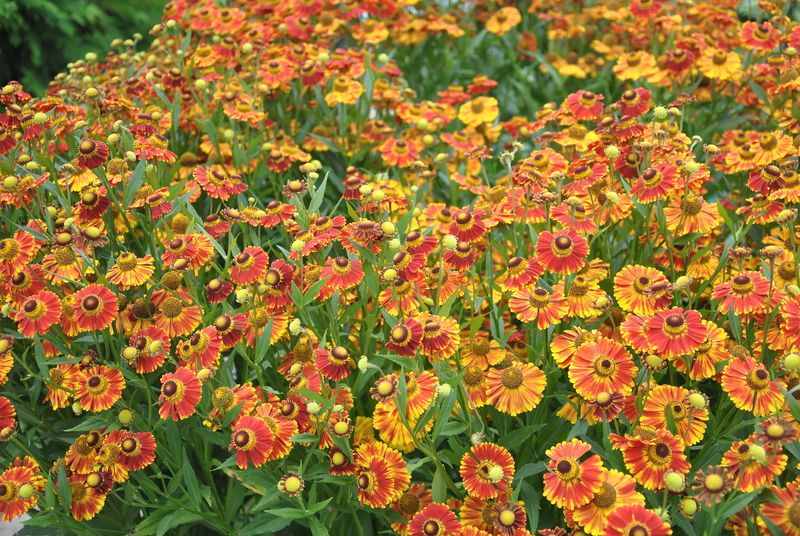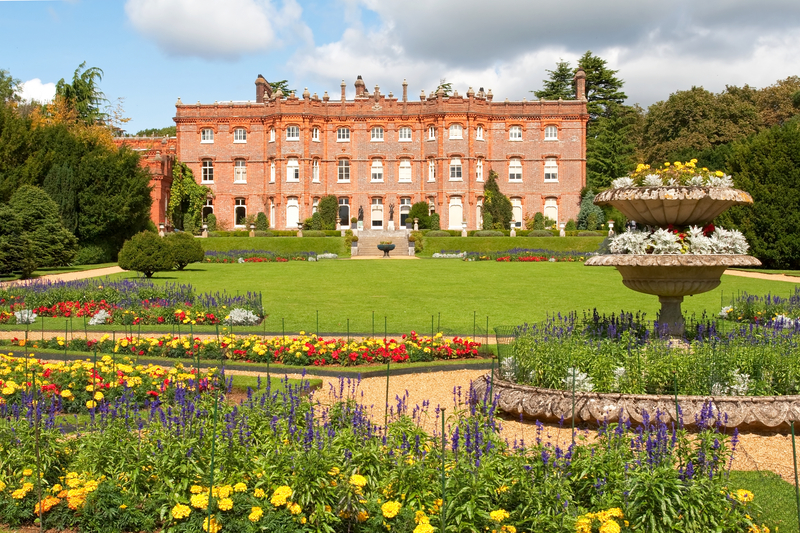Set the Seeds for Success: 9 Tips for Gardening Beginners
Posted on 23/09/2025
Set the Seeds for Success: 9 Tips for Gardening Beginners
Embarking on a gardening journey is both exciting and rewarding. No matter the size of your space or your prior knowledge, anyone can experience the satisfaction of nurturing plants and watching them thrive. If you're looking to set yourself up for a flourishing garden, you've come to the right place. In this comprehensive guide, we'll reveal nine essential tips for gardening beginners and help you plant the seeds for gardening success!
Why Start Gardening? The Benefits for Beginners
- Mental Wellness: Gardening is a therapeutic hobby. Spending time with plants can reduce stress and improve overall mood.
- Physical Health: Digging, pruning, and planting provide gentle exercise that benefits the body.
- Fresh Produce: Growing your own vegetables and herbs ensures a supply of fresh, organic food.
- Environmental Impact: Gardens contribute positively to the environment, enhancing air quality and supporting biodiversity.
Whether you're cultivating a colorful bed of flowers or a bountiful vegetable patch, beginner gardeners stand to gain more than just pretty blossoms or tasty veggies.

9 Essential Tips for Gardening Beginners
If you want to cultivate a successful garden as a beginner, consider these crucial tips to set you on the right path:
1. Start Small and Simple
It's easy to dream big when starting your gardening journey, but beginning with a modest plot or a few containers allows you to learn and grow skills as you proceed. Container gardening is a fantastic way to start if space is limited.
- Choose a manageable size for your first garden bed.
- Focus on a handful of plants instead of dozens.
This manageable approach ensures you won't get overwhelmed and can better monitor each plant's needs.
2. Understand Your Growing Zone
Your planting zone--determined by local climate--dictates which plants will thrive in your environment. Consult resources like the USDA Hardiness Zone Map or regional gardening guides.
- Know your frost dates to plan planting and harvesting times.
- Choose plants suited to your zone for the highest chance of success.
Selecting plants that match your location's climate is one of the key beginner gardening tips that can save you time and disappointment.
3. Pick the Right Spot: Sunlight and Soil
Most garden plants need at least 6-8 hours of direct sunlight per day.
- Monitor your yard or balcony to determine which areas receive the most sun.
- Make sure to avoid spots where water pools or where large trees might block the light.
Soil quality is just as important as sunlight. Invest in good soil or amend native soil with compost to improve nutrient content and drainage.
Tip: A simple soil test can tell you about pH and nutrient levels, helping you tailor amendments for optimal plant growth.
4. Choose Easy, Beginner-Friendly Plants
For those just starting out, picking easy-to-grow plants is essential. Some resilient options include:
- Lettuce and other leafy greens
- Radishes and carrots
- Zinnias and marigolds (for flowers)
- Herbs like basil, mint, and chives
Start with seedlings from a local nursery if you want a head start or sow seeds directly if you enjoy watching the whole growth process.
5. Learn to Water Properly
Overwatering is a common mistake for new gardeners. Plants prefer a deep soak over frequent, shallow watering. Here's how to master the art of watering:
- Water early in the morning to minimize evaporation and fungal diseases.
- Check soil moisture by sticking your finger about an inch deep--only water if it feels dry.
- Use mulch to retain soil moisture and suppress weeds.
6. Feed Your Plants
Like humans, plants need nutrition. Organic compost or balanced fertilizers keep soil rich and your plants thriving.
- Apply compost in early spring and refresh periodically during the growing season.
- Read fertilizer instructions carefully--too much can harm your plants.
A well-fed garden sets the foundation for healthy, robust plant growth.
7. Learn the Art of Pruning and Deadheading
Regular pruning helps plants maintain shape and health, while deadheading (removing spent flowers) encourages new blooms.
- Use clean, sharp tools for when you cut branches or stems.
- Prune at the right time of year--most often early spring or after flowering.
Pruning stimulates growth and keeps your garden tidy and productive.
8. Stay Ahead of Pests and Diseases
Even beginners will encounter garden pests or plant diseases. Early detection and organic management reduce damage.
- Regularly inspect leaves for chewed edges, discoloration, or wilting.
- Encourage beneficial insects like ladybugs or use gentle sprays like neem oil.
- Practice crop rotation to keep soil and plants healthy.
Remember: a strong, well-fed plant is naturally more resistant to problems.
9. Keep Track and Celebrate Your Progress
Documenting your gardening journey helps you learn and appreciate your progress. Keep a simple garden journal noting:
- Planting dates and varieties
- Weather conditions
- Watering and feeding schedules
- Successes and lessons learned
Success in gardening is about progress, not perfection. Celebrate your first sprout, bloom, or harvest--every milestone is a step closer to becoming a confident gardener.
Bonus Gardening Tips for Beginners
To set the seeds for continued gardening success, keep these extra pointers in mind:
- Patience yields results. Some seeds sprout in days, others in weeks--don't get discouraged!
- Stay observant. Your plants communicate their needs--leaves turning yellow, drooping, or wilting all tell a story.
- Enjoy the process! Gardening is about learning, connecting with nature, and enjoying the outdoors.
Common Mistakes New Gardeners Make (and How to Avoid Them)
Even seasoned gardeners slip up occasionally. Here are some common beginner gardening mistakes and how to sidestep them:
- Ignoring Plant Spacing: Crowding plants can block sunlight and restrict airflow, inviting disease. Read seed packets for proper spacing instructions.
- Neglecting Regular Care: Skipping checks for water, pests, or pruning leads to plant problems. A simple routine makes a big difference.
- Planting at the Wrong Time: Frost can kill young seedlings. Always check your last frost date before sowing seeds or transplanting.
- Over-fertilizing: More isn't always better. Excess nutrients may burn delicate roots or encourage excess leafy growth at the expense of flowers or fruit.
Learning from mistakes is all part of growing as a gardener!
The Rewards of Gardening for Beginners
Beyond lush blooms and homegrown produce, gardening as a beginner offers:
- Personal Satisfaction: Watching life sprout from your care is immensely gratifying.
- Family Connection: Gardening is a wonderful way to bond across generations and teach children about nature's cycles.
- Community: Local gardening clubs and online forums are great for sharing advice and celebrating victories.
- Mindful Living: Gardening encourages patience, observation, and appreciation for the natural world.

Gardening FAQs for Beginners
-
What is the best time to start a garden?
Most gardens are started in spring, after the danger of frost has passed. In warmer climates, fall gardening is also possible. -
Should I grow from seeds or buy seedlings?
Seeds offer variety and are cost-effective, but seedlings give beginners a head start. Try both to see what you prefer! -
How much time will I need to maintain my garden?
Most small plots require as little as 15-30 minutes a day for watering, weeding, and inspection. -
What tools do I need to start gardening?
Start with basics: a trowel, pruners, gloves, watering can, and a garden fork or spade. Expand as you gain experience.
Final Thoughts: Planting the Seeds for a Thriving Garden
Starting a garden as a beginner may seem daunting, but small, consistent steps yield big results. Keep your space simple, focus on beginner-friendly plants, and remember to observe and learn as you go. Armed with these nine tips for gardening beginners, you're ready to set the seeds for gardening success and nurture both your plants and your passion for years to come.
Ready to dig in? Grab your gloves and spade, and let the adventure begin! Happy gardening!

